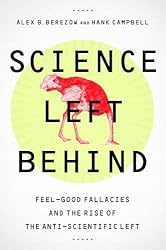
Companies left and right are banning plastic straws because ocean critters are important - with no evidence getting rid of plastic straws is really helping marine critters at all. While I shake my head at that, I am not surprised. The free market has spoken, companies respond to what consumers think they want. When activists and endocrine disruption magicians claimed BPA might be doing...something...the science community knew that if a chemical binds to estrogen 1/20,000th as well as actual estrogen, it is not doing anything, it is just a harmless trace chemical, but I was not surprised ConAgra took it out of their cans. The public were told they wanted that. The market responded and the cost was passed along to consumers.
I was also not surprised that environmentalists did not suddenly rush to buy Manwich without BPA lining in the cans, and the company laid off 1,500 people due to its higher costs and flat revenue.
Do you want a paper straw that won't work or a permanent one that will never be cleaned? The movement may be temporary. We may see a migration back to straws after the hype dies down, just like we saw a migration back to butter after food lawyers like Center for Science in the Public Interest could no longer hide that trans fats were not healthier because they came from plants. Even the U.S. Congress has undone flawed policies, like their boondoggle with corn-based utensils instead of plastic from 2007-2011. (1)
Before straws this year, there was a war on plastic bags, brought about by, you guessed it, environmental press releases and carefully staged photos of garbage. Now poor people have to pay for bags, a regressive tax, unless they can foot the upfront cost for buying bags. And there is a health issue with reusing bags, unless you reuse them for garbage, namely bacterial buildup from meat and vegetables. How often do people wash their reusable bags? Ever? Well, rarely, a study found. Even the most casual cleaner knows you don't want meat drippings on your counter promoting illness the next time you make food, but most won't think about it in bags. And if you keep them in your trunk the bacteria could increase 10X.
But reusing bags is for Gaia, right?
Except it isn't. A recent study found that a cotton bag will need to be reused 7,100 times (2) for it to make sense from a Life Cycle Assessment environmental impact perspective - all the resources that go into manufacturing. 7,100 times means that if you go grocery shopping once per week (and you shouldn't go more often because that's bad for the environment too) you will have to use that bag for 136 years.
As Dr. Trevor Thornton, Lecturer in the School of Life and Environmental Sciences at Deakin University phrased it, "Our assumptions about what is environmentally friendly don’t always stand up to scrutiny."
Which means we should scrutinize first, and waste money on alternatives later.
NOTES:
(1) In Science Left Behind (with Dr. Alex Berezow, before either of us were at the American Council on Science and Health) I wrote about the Congressional cafeteria replacing plastic utensils with compostable, corn-based environmentally terrific alternatives after Democrats gained control of the House in January, 2007. Environmentalists cheered. The Congressional buildings were miserable. The utensils broke and melted easily. Congressional accountants were baffled. The cost was incredibly high, and the utensils had to be shipped on giant, emissions-belching trucks to Virginia to be composted. When the House switched hands again in 2011, the outgoing head of the committee recommended to his replacement that they switch back and Rep. Lundgren of California did. Minority Leader Rep. Nancy Pelosi then claimed Republicans were giving people cancer with styrofoam and killing the environment with plastic.
(2) "Organic" cotton is even worse for the environment due to older production requirements in order to use the label.




